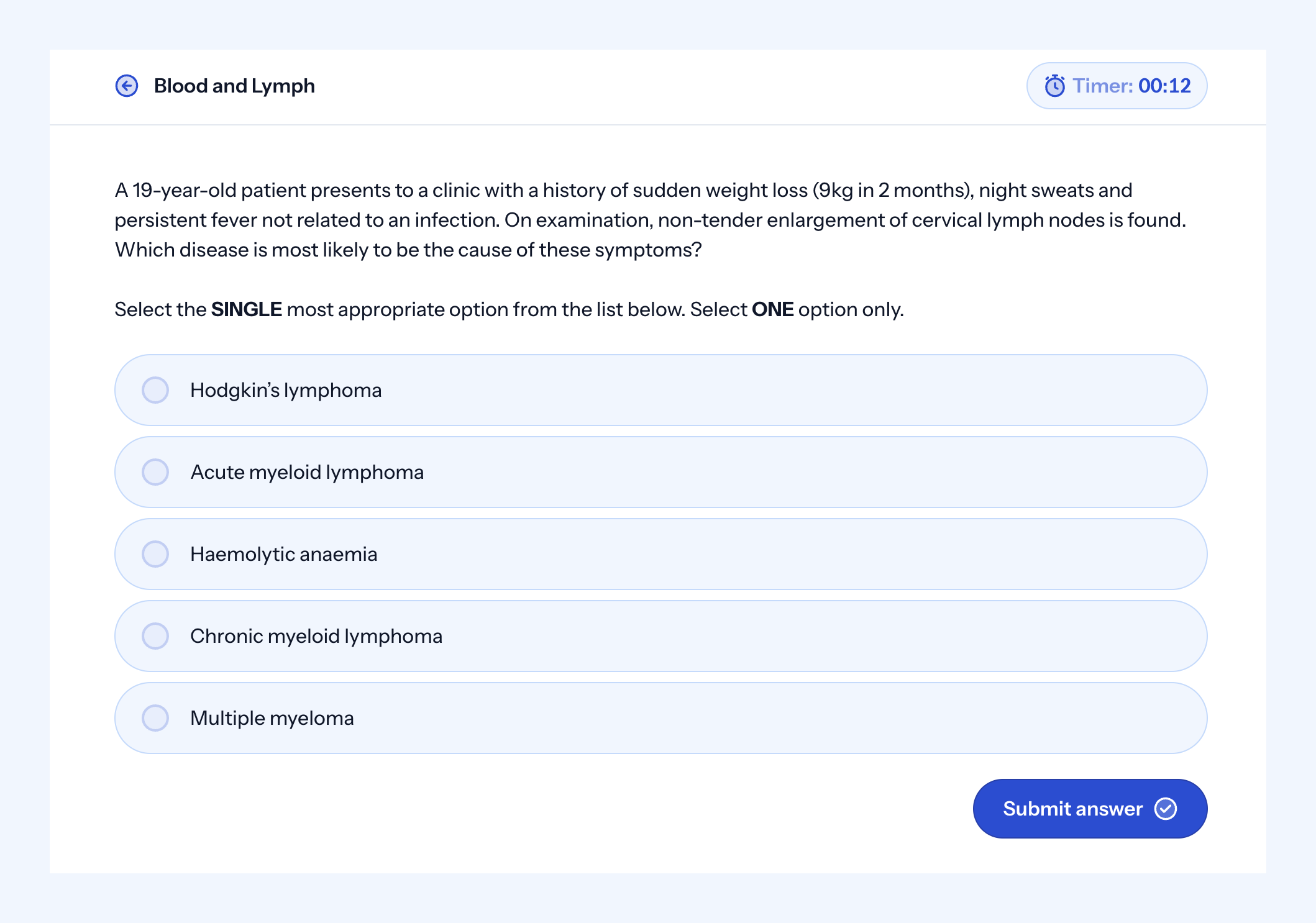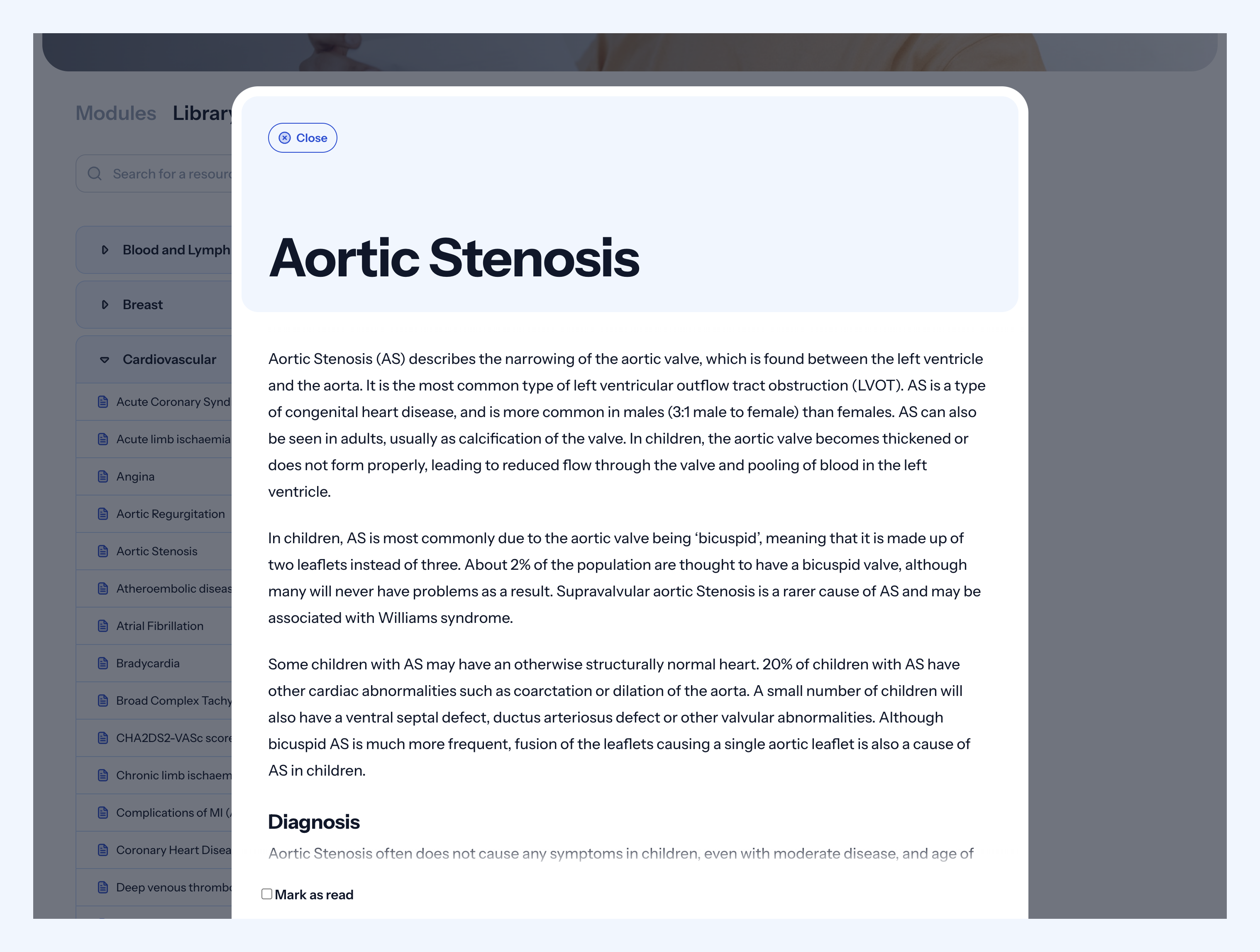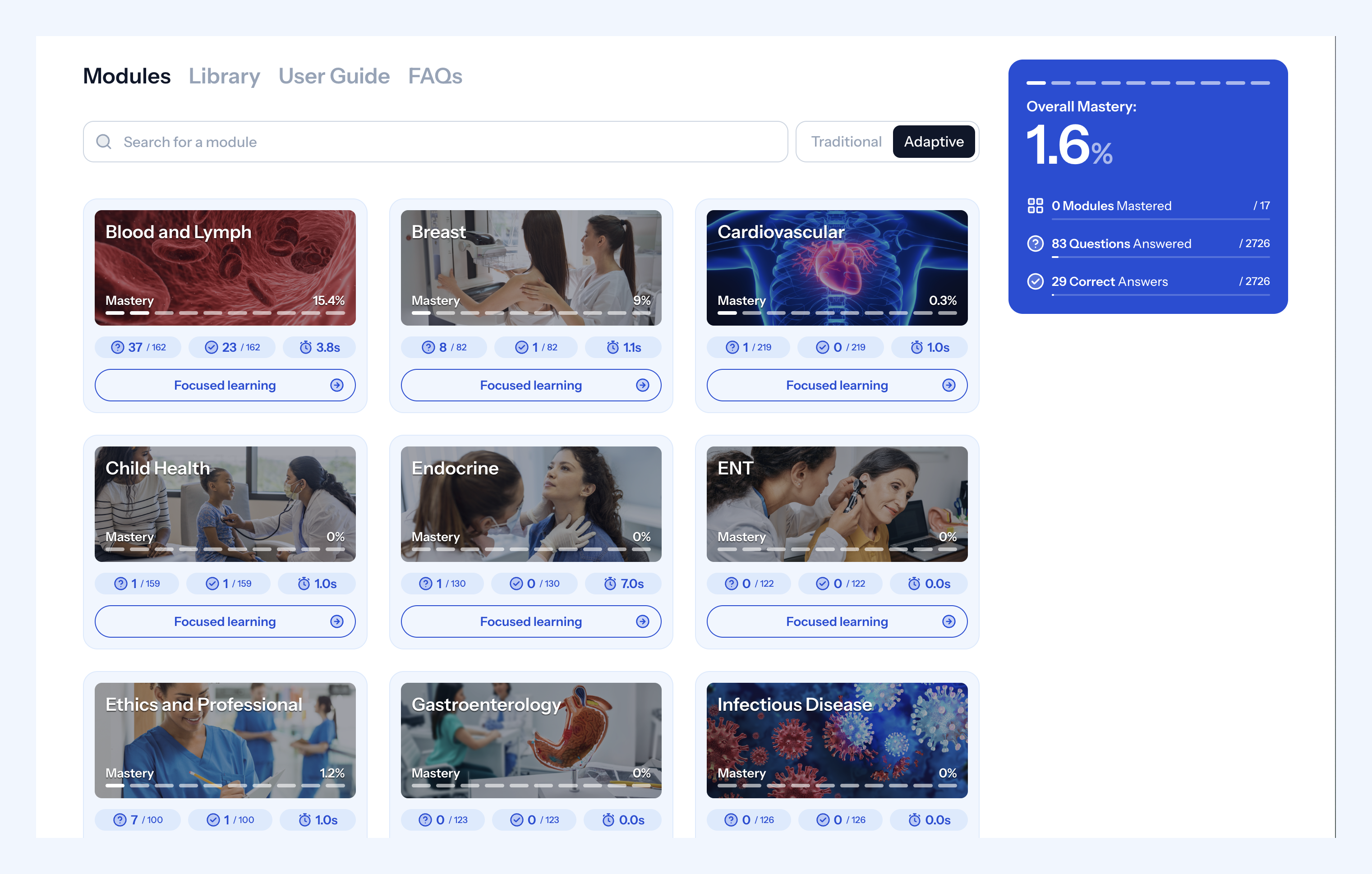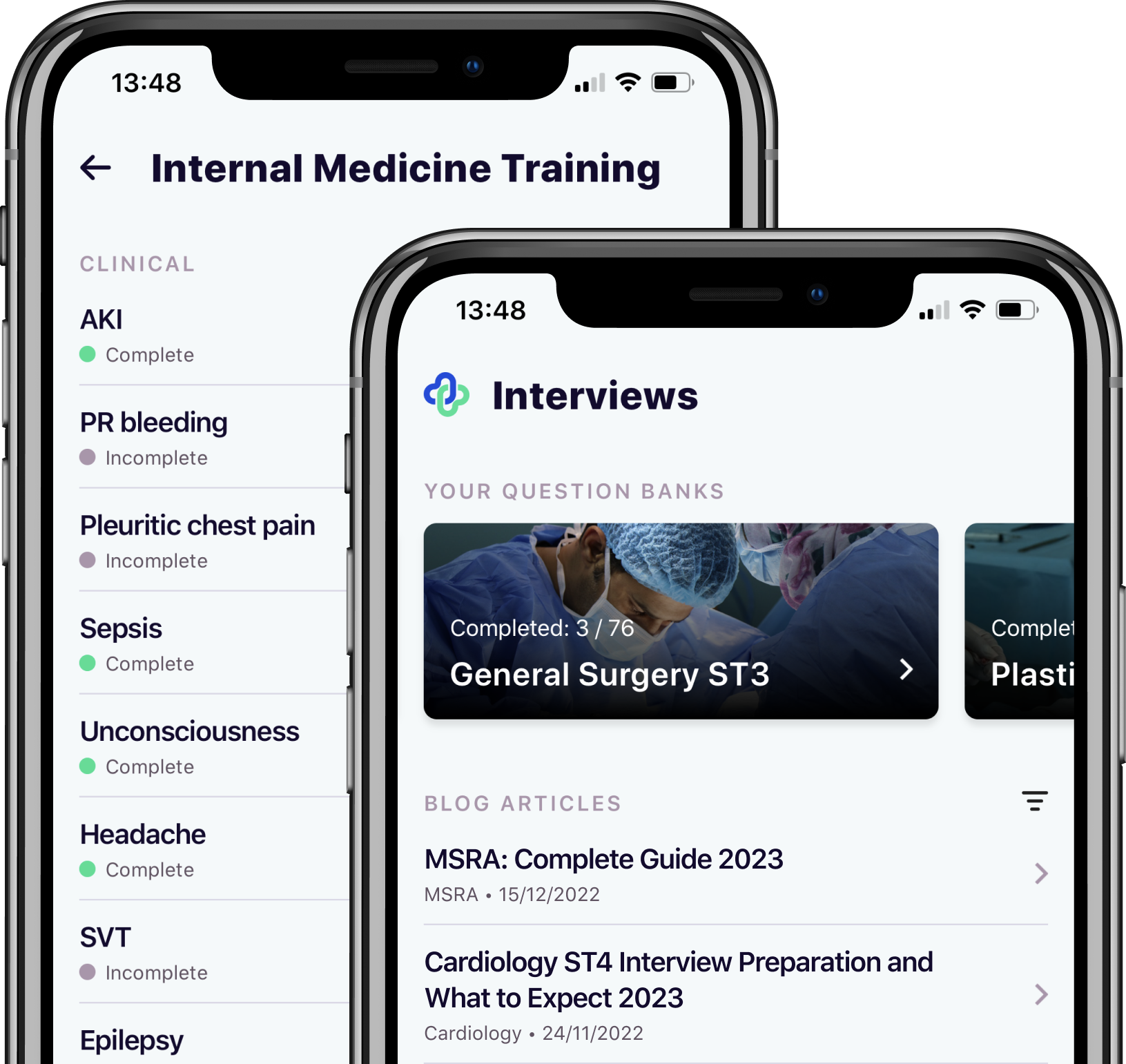
PLAB 1 Guide 2025
If you’re considering taking the Professional and Linguistic Assessments Board (PLAB) 1 exam in 2025, this article is a great place to start! Our comprehensive PLAB 1 guide will provide you with all the information you need – including registration, fees and dates; what the exam entails; and how to prepare.
If you plan to practise medicine in the UK, you might have found yourself thinking, “What is the PLAB 1 exam?”. The PLAB exam (PLAB 1 and PLAB 2) is an essential component of the registration process with the General Medical Council (GMC) for overseas medical graduates who don’t hold a relevant European qualification. Registration with the GMC is compulsory for all doctors wishing to practise medicine within the UK.
This guide focuses on the PLAB 1 exam, but completing PLAB 2 is also essential. To learn more about the PLAB 2 exam, including exam cost, scoring and previous pass rates, visit our PLAB Guide for more information.
PLAB 1 Syllabus
In 2024, the PLAB blueprint was replaced with the MLA content map, which outlines the core knowledge, skills and behaviours needed for practising in the UK. Therefore, it’s important that you prepare using a question bank that’s based on the MLA content map (rather than a PLAB question bank based on the PLAB blueprint). Failure to do so might leave you unprepared on the day. To learn more about the MLA content map visit our MLA Guide. And for more information about how these changes have impacted the PLAB exam see the section below and our PLAB and MLA blog.
If you completed your medical qualification outside of the UK, the PLAB 1 exam is designed to assess that you have the relevant skills and knowledge to practise medicine within the UK. The questions relate to current best practices in the UK and will assess your ability to apply your knowledge to the care of patients.
For a full breakdown of the knowledge, skills and behaviours assessed as part of the PLAB exams, the GMC provides the MLA content map. This gives an overview of the syllabus for the topics assessed, their presentation and related conditions.
The MLA content map includes six domains which will be covered in the exam:
- Clinical practice
- Professional knowledge
- Clinical and professional capabilities
- Practical skills and procedures
- Patient presentations
- Conditions
The domains detailed above relate directly to those outlined in the GMC’s good medical practice. This is the GMC’s core guidance, which all registered doctors are expected to adhere to; therefore, the PLAB exam tests your knowledge of the key principles outlined in the guidance and your ability to apply these. For this reason, the GMC advises familiarising yourself with the good medical practice document before reading the MLA content map.
In addition to the MLA content map and GMC good medical practice, the following documents are also essential to your revision:
- Outcomes for provisionally registered doctors – UK doctors must meet these at the end of their first year of Foundation Programme training to enable them to apply for full registration with a licence to practise.
- The UK Foundation Programme curriculum – this is the framework which is used in the UK to support the first two years of educational training for doctors.
The GMC explains that the PLAB 1 exam ‘covers the common, important or acute conditions (those common in emergency departments) seen by trainees entering their second year of the Foundation Programme (F2), and the management of long-term conditions seen in primary care.’ This makes the UK Foundation Programme curriculum and outcomes for provisionally registered doctors such useful documents when preparing for the PLAB exam, as you’ll be expected to respond to scenarios matching those typically faced by doctors beginning the second year of their UK Foundation Programme training.
PLAB 1 Exam
Details of the PLAB 1 exam are as follows:
- PLAB 1 is a written multiple-choice exam
- Exam duration: 3 hours
- Number of questions: 180 ‘single best answer’ multiple choice questions
- Structure: For each question, you’ll be given a short scenario followed by a question and five possible answers.
Below is an example of a question taken from our PLAB 1 question bank to give you an idea of the structure of the questions.

The GMC provides details on what to expect on the day of the PLAB 1 exam, including when you should arrive and what you should and shouldn’t take with you.
PLAB 1 Dates
The most recent and upcoming PLAB 1 exam dates are:
| Exam date | UK closing date |
|---|---|
| 20 February 2025 | 3 April 2025 by 4pm |
| 22 May 2025 | 3 July 2025 by 4pm |
| 7 August 2025 | 18 September 2025 by 4pm |
The UK exams are currently available in the following locations:
- Belfast
- Birmingham
- Cardiff
- Edinburgh
- London
- Manchester
- Newcastle
- Oxford
- Sheffield
The exam can also be taken in the following overseas locations:
| Country | City |
|---|---|
| Australia | Sydney |
| Bangladesh | Dhaka |
| Canada | Toronto |
| Egypt | Alexandria Cairo |
| Ghana | Accra |
| India | Bangalore Chennai Hyderabad Kolkata Mumbai New Delhi |
| Kenya | Nairobi |
| Nigeria | Abuja Enugu Lagos |
| Pakistan | Islamabad Karachi |
| Republic of Ireland | Dublin |
| Saudi Arabia | Riyadh |
| South Africa | Johannesburg |
| Spain | Madrid |
| Sri Lanka | Colombo |
| UAE | Dubai |
To find available places and test locations, within the UK and overseas, you need to register for a GMC online account.
How much does PLAB 1 cost?
The current test fees for PLAB 1 are £273.
These apply to bookings from 1 April 2025 and are provided on the GMC website.
As you can see, the exam is not cheap. We’ve therefore kept the cost of our adaptive PLAB 1 question bank low to ensure that everyone can access the materials they need to pass first time.
It’s worth also bearing in mind, should you need to cancel your PLAB 1 exam, the GMC may charge you a cancellation fee. You can find a breakdown of the cancellation fees in our PLAB Guide.
For exceptional circumstances, such as visa refusal, the introduction of travel restrictions, ill health or bereavement, the GMC may consider giving you a full refund if you’re unable to attend your exam. You can find more details on why and how a full refund is granted here. We take the same approach with our adaptive question bank, so if for any reason you can’t take the exam or need an extension, we’ll do this for you at no extra cost.
How to register for PLAB 1
To register for the PLAB 1 exam, you need to set up a GMC online account and provide the following details:
- Primary medical qualification
- Valid passport
- Postal address
- Email address
Using your GMC online account, you can view available test dates and locations under the ‘My Tests’ section and book your PLAB 1 exam.
You won’t be able to book your PLAB 1 exam until you have provided evidence that you meet the relevant eligibility criteria. This includes evidence of your English language skills and your fitness to practise, and verification of your primary medical qualification. You can find out more about the PLAB 1 eligibility criteria in our PLAB Pathway / Route blog.
PLAB 1 Practice
You’ll find a small selection of sample PLAB 1 questions on the GMC’s website with answers, explanations and links to the relevant GMC guidance. These are useful for providing examples of the types of questions you’ll face during your PLAB 1 exam.
To prepare effectively for the exam, you’ll need to complete a wider range of practice questions than those provided by the GMC, so ensure you carefully think about what PLAB study materials you will use.
When deciding which PLAB question bank to use, there are several things to consider:
- The cost of the question bank. Depending on your budget, a wide range of question banks are available. We’ve kept our question bank as cheap as possible and offer a number of subscription packages to ensure you only pay for what you need.
- How many questions you have access to, and the quality of those questions; you should look for question banks with a wide range of questions covering all areas of the syllabus for the PLAB 1 exam. Our question bank offers over 2,500 questions across 18 sections, making it one of the largest on the market. This is important as the PLAB syllabus is extensive, so you need to cover a lot of questions to ensure you’re fully prepared.
- When answering questions, it is important to be able to review answers and explanations, especially for topics you weren’t so sure about, so make sure your chosen question bank provides explanations for each question to help expand your knowledge. Most good question banks will ensure their explanations are comprehensive enough for the exam. We’ve included an example from our own question bank below so you can see the type of explanation you should be getting.

- Are you able to see if you are improving? Most question banks will tell you how many questions you have gotten right or wrong, but this can be deceptive, as you don’t actually know how hard the questions were or how much of the syllabus you’ve covered for each topic. Ideally, you want to see how much of the syllabus you’ve actually mastered so you can spend your time focusing on your weak areas. We include your mastery level for each topic on the dashboard of our question bank so you can work this out easily.

- Your style of learning. Are you someone who likes to only answer questions or do you prefer to read up on a topic first before answering questions on it? Your learning style will play an important role in deciding what type of revision material you go for. We’ve catered for both types of learners in our adaptive question bank by providing a full learning library for every topic covered in the PLAB syllabus that you can read through at your leisure.
We might be biased, but we believe our adaptive PLAB question bank is the perfect accompaniment to the GMC resources! With thousands of professionally written practice questions and comprehensive explanations, we have everything you need to pass first time.
Unlike traditional practice questions, which provide standardised questions and answers, our PLAB question bank uses artificial intelligence to automatically adapt to your individual strengths and weaknesses, and provide questions that will target your areas for development. This ensures your learning is more focused and helps you to progress more quickly and effectively. To give yourself the best chance of passing the PLAB 1 first time, check out our adaptive PLAB 1 question bank today!
Is the MLA replacing the PLAB?
The United Kingdom Medical Licensing Assessment (MLA) has recently been introduced by the GMC. The exam has been designed to ensure that all doctors licensed to practise in the UK are assessed against the same standard for safe practice.
From the academic year 2024-25 onwards, medical students training in the UK will need to pass the MLA before they can graduate and obtain a licence to practise medicine. Initially, it was also intended for international medical graduates, as a replacement for the PLAB. However, the GMC have confirmed that if you’re required to pass the PLAB as part of your registration, you will continue to do so and will not be required to take the MLA.
However, as mentioned earlier, the MLA content map has been used for the PLAB (replacing the PLAB blueprint) from:
- For PLAB 1, all tests sat on or after 8 August 2024 will be based on the MLA content map
- For PLAB 2, all tests sat on or after 17 May 2024 will be based on the MLA content map
This is intended to make the exam compliant with the requirements of the MLA. Remember, you should use a question bank that’s based on the MLA content map if your exam is affected. For more information about the MLA content map, visit our MLA Guide. And to learn more about how the introduction of the MLA will impact the PLAB, visit our PLAB and MLA Guide for everything you need to know.
Further Reading

Take your subscriptions with you
Our mobile app allows you to access your interview and exam question banks wherever you are.





